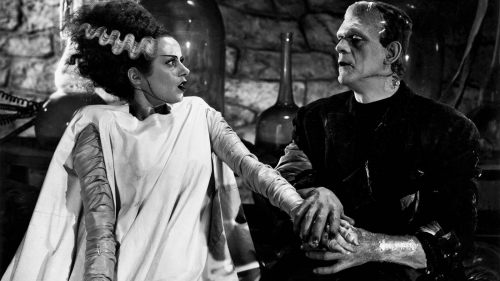The Beginnings of A Revolution: Prince’s PIANO & A MICROPHONE
Though his death was tragically premature, Prince left his fans with a vast library of music to explore; far beyond the blockbuster achievements of his ‘80s and ‘90s output, the iconic musician left behind albums upon albums of great material that, though lesser known, are well worth tracking down. (Both volumes of HitnRun, for example, stand up particularly well next to the likes of Parade and Diamonds and Pearls.) Of course, collecting everything he’s released is nothing short of a Sisyphean task given the sheer volume of alternate versions, remixes and b-sides he put out over the course of his career, not to mention the abundance of bootlegs that have been sold or shared through the years. And then there’s Prince’s mythic “vault,” that secret reservoir of storied recording and collaborations that, for one reason or another, never came to fruition or were withheld from public consumption.
Prince himself hinted at the promise of opening those floodgates back in 2014 when he reached a legal accord with Warner Bros. over ownership of his master recordings, and plans were revealed for a deluxe edition of Purple Rain that would feature remastered audio and unreleased songs. His death, and perhaps his natural inclination to do things in precisely his own time, prevented that release from arriving until 2017, but for fans, it was unquestionably worth the wait, and since then, Warner has slowly begun the process of prying free a few more treasures from the late singer’s estate for audiences to hear. His original 1984 version of “Nothing Compares 2 U” was released earlier this year, and today, on what would be Prince’s 60th birthday, Warner Bros. announced plans to release Piano & a Microphone on Sept. 21, a collection of the home recordings the iconic musician produced in 1983.
As a longtime fan, the immediate reaction to this news is that it’s wonderful; silly as it might sound, his absence from music feels palpable, and the prospect of new, even “old” new music, keeps him alive to many of us still processing his death. Tracks include early versions of “Purple Rain,” “Strange Relationship” (from Sign ‘O The Times) and the famous b-side “17 Days,” a stripped down alternate version of 1999’s “International Lover,” a cover of Joni Mitchell’s “A Case Of You,” and a performance of the pre-Civil War spiritual “Mary Don’t You Weep,” which is available for immediate download when you pre-order the album. There are also three other tracks, “Wednesday,” “Cold Coffee & Cocaine” and “Why The Butterflies,” which are known to hardcore Prince fans (or at least documented on PrinceVault.com), but have never before been officially released. Piano & a Microphone is set for release as a digital album, CD, and deluxe vinyl version not only featuring images from the era taken by Dirty Mind and Controversy cover photographer Allen Beaulieu but a booklet with liner notes from Prince’s engineer Don Batts.
As with “Nothing Compares 2 U,” there is (or presumably will be) something fascinating about comparing these different versions of the songs to their better-known counterparts - what he emphasized, how he performed them, which might possibly emerge as a more memorable or “definitive” iteration in the wake of his death. Particularly at the time of these recordings, Prince seemed to have a very acute sense of not just what his public persona was, but where he was emotionally in his own life - which is why his first version of “Nothing Compares 2 U,” the live cover he did with Rosie Gaines, didn’t show up until he released his Hits packages in 1992. (He was in the throes of his romance with Susannah Melvoin during his Purple Rain era and didn’t want to live in the song’s emotionally negative space, much less fuel tabloid rumors.)
Because his creativity was so consistent, he would conceive these different sorts of songs even when he wasn’t sharing the feelings or directly inspired by their sentiment - which is undoubtedly why some of these never saw the light of day: he would move on from writing them to something else, despite the fact that, by comparison, one of his discarded “ideas” was often better than another artist’s fully-rendered composition. That they’re now seeing the light of day gives us a more complete view into that creative process, and a welcome reminder of how beautifully he could bend the emotion of these songs to his talent, creating haunting, beautiful “new” renditions of songs we’ve already decided are classics.
Of course, getting albums of fully new material - be they from that era or any other in Prince’s career - would be as exciting, especially since he reportedly has thousands upon thousands of songs that he just sat on, after completing them for himself and for others. But Prince’s estate seems to be showing the right kind of restraint with its releases thus far, by collecting and mastering familiar and familiar-adjacent projects that venture carefully into the unexplored corners of the artist’s expansive library of recordings. Given Prince’s genius, it would come as no surprise to unearth a new song, here or somewhere else down the road, that’s as fun, catchy, or meaningful as the ones we’ve already fallen in love with, but whether they’re with a piano and a microphone or all of the members of the Revolution, these recordings serve as an important reminder not just of the enduring impact of his music, but of Prince himself - to his fans, the music community, and a world that feels a little bit emptier without him in it.



